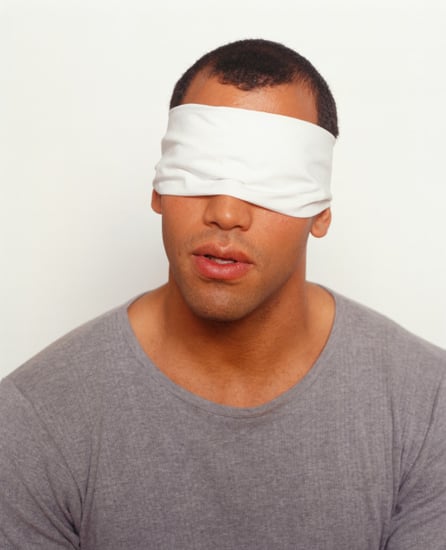Nobody appreciates sleep as much as a college student. With that being said, no one sleeps less than a college student … OK, maybe a mom of a newborn baby. Point is, sleep in college is always like chasing someone you really like that plays hard to get. Personally speaking, the only time I am able to sleep the recommended 7-9 hours a night is on the weekends -given I don’t have dance practice that next morning. I know very little about the human body, but I figure that has to be terrible for my overall physical and mental health. So for this blog post I figured I’ll find out just how important sleep is to human body, just how much sleep do we really need and am I going to die early because for the lack thereof?
What Does Science Say About Sleep?
The American Sleep Association recommends 8 hours as the optimal amount of rest needed to prevent sleep deprivation. However, recent data received from National Institute of Health, the American Academy of Sleep Medicine (AASM), and the Sleep Research Society indicate that the old recommendation of a solid 8 hour a night isn’t necessarily the case for everyone. Researchers are starting observe that the amount of sleep that a person requires depends on their circadian rhythm -your body’s internal clock.
Author of Sleep for Success, James Maas, PhD, former professor and chair of psychology at Cornell University says the proper amount of sleep is defined as what is needed for an individual to remain awake, refreshed and focused without the aide of stimulants, such as coffee or energy drinks. He added that if you aren’t able to stay awake, alert and focused from solely the amount of sleep you received the night before then you are suffering from some form of sleep deprivation. So, literally meaning me, everyday in college.
So How many hours of sleep do you need?
The National institute of health says that the average adult sleeps roughly 6 hours a night. And while this may seem like enough given how fast paced everything is in society today it is proven to be that most healthy adults need between 7.5 to 9 hours of sleep each night to function at their best. In fact researchers at the University of California, Sans Francisco discovered that only 3% of the worlds population has a gene that allows them to be able to do well on only 6 hours of sleep a night. Meaning that the rest of us, 97% of us, need that recommended 7.5-9 hour rest to be fully great. With that said, the chart below indicates that the younger you are the more sleep you need to meet your full potential awake.
Average Sleep Needs by Age |
|
| Newborn to 2 months old | 12 – 18 hrs |
| 3 months to 1 year old | 14 – 15 hrs |
| 1 to 3 years old | 12 – 14 hrs |
| 3 to 5 years old | 11 – 13 hrs |
| 5 to 12 years old | 10 – 11 hrs |
| 12 to 18 years old | 8.5 – 10 hrs |
| Adults (18+) | 7.5 – 9 hrs |
“Sleep Health”
Sleep Health is a modern field of research dedicated to studying the effects sleep has on your body. I’ll share one of it’s four broad categories, “Science,” which serves as the nuts and bolts of what sleep does for parts of your body internally as well as describes what sleep deprivation can do to decrease their levels of efficiency:
- The BRAIN:
- Sleeping allows for cerebral spinal fluid to be pumped at a much higher/quicker rate than when you are awake. Your brain makes brain cells, the cerebral spinal fluid being pumped throughout the brain acts as sort of a ‘dishwasher’ ridding your body of the waste products created by these brain cells. Allowing you to wake up feeling refreshed and in sense, literally ‘clean’.
- When sleep deprived your brain isn’t on it’s ‘A game, your mind slows down a lot; you become forgetful and skills you may normally have when fully rested (good speaking capabilities, writing, etc.) are impaired slightly. Maas says there’s also sort of a reduction in your decision making capabilities due to your lack of focus.
- Sleep deprivation effects your response time and messes with not only your form but your motor skills. Which explains while driving while sleepy is single handedly one of the hardest things one can do. Nothing works, rolling down the windows, blasting music, nothing but a good nights rest.
- Your LUNGS
- While awake breathing patterns tend to vary significantly. For example, physical exercise, fear, excitement speeds up breathing rate. While you are asleep however, your breathing rate is slowed and regulated.
- Your HEART
- Your heart works extremely hard during the day and during the Non-REM cycle part of sleep your heart gets a well deserved break. Sleeping allows your heart to be reduced as well as your blood pressure.
- Your MUSCLES
- The more you sleep, the more and better equipped your body is to repair itself. Growth hormones, that work to build and strengthen your muscles and joints are released while you sleep.
- Your IMMUNE SYSTEM
- Cumulative sleep deprivation over time can lessen your body’s ability to fight off an infection. Josiane Broussard, PhD, researcher and assistant professor at the University of Colorado at Boulder, found that sleep deprivation -more specifically one night of no sleep, was just a detrimental to a person as having a high fat diet. Meaning that pulling an all righter can result in insulin sensitivity, a key predictor of type-2 diabetes, just as much as six months on a high-fat diet. Which was SHOCKING for me to learn.
SO WHAT?
I can give it to you 6 different ways, but no matter which way I put it, scientifically, psychologically speaking, SLEEP IS IMPORTANT. We all, myself included, are guilty of accumulating a large amount of Sleep Debt, and instead Just shaking it off, going “I’ll catch up on sleep this weekend.” But that is not how your body works; you can not make up for continuous sleep deprivation with one night of full rest. The science shows that there is a direct causation between the amount of sleep on gets and the productivity of their day and mind. I understand we are all in college and have busy, demanding school, work and social schedules, but it is rather imperative that we take care of ourselves if we have any hope of succeeding at any of these endeavors.




 es mental health.
es mental health.  Therefore, spinning is beneficial from both a physical and mental perspective according to science.
Therefore, spinning is beneficial from both a physical and mental perspective according to science. 

